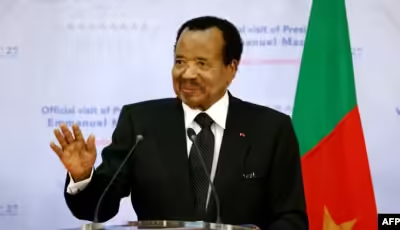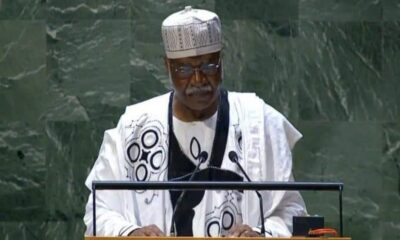A Lusaka Magistrates’ Court has ordered jailed former Zambian Minister of Defence, Geoffrey Mwamba, to pay the government the sum of US $899,970 and K10 million, following his conviction on charges related to multiple corruption.
The order which was given on Wednesday by Principal Resident Magistrate, Stanford Ngobola, required Mwamba to pay $399,985 for count 10, $499,985 for count 11, and K10 million for count 12.
The judge also directed that failure to comply with the ruling would result in the issuance of a warrant of distress against the former minister.
Zambia Monitor reports that Mwamba was convicted on October 9, 2024, on eight counts bordering on conflict of interest, one count of money laundering, and four counts of possessing property suspected to be proceeds of crime.
The State had applied for the payment order under Section 15(8) of the Forfeiture of Proceeds of Crime Act No. 19 of 2010.
During the trial, Zambian anti-corruption commission investigator, Masautso Mwale, disclosed in an affidavit that investigations revealed funds linked to counts 10-13 had been withdrawn from bank accounts held at Investrust Bank PLC and First Alliance Bank.
The accounts, including those tied to Germins Motorways Limited and Arizona Marketing and Distributors, showed minimal or no remaining balances, Mwale said.
The State also argued that the court could issue a payment order as an alternative to forfeiture and warned that failure to recover the funds would prejudice the government.
In his defense, Mwamba’s legal team opposed the application, citing an ongoing appeal in the High Court.
His team argued that issuing the payment order could prejudice him if the appeal succeeded, referencing precedents emphasizing the need to await appeal conclusions before enforcement.
However, Magistrate Ngobola dismissed Mwamba’s objection, referencing the Leah Tekumwezo Mpondela v. The People case, which held that forfeiture applications could proceed despite pending appeals.
The court highlighted safeguards in Section 11(4) of the Forfeiture of Proceeds of Crime Act, ensuring forfeited property cannot be disposed of during an appeal.
In his conclusion, Ngobola ruled that due diligence had shown the funds could not be located, making a payment order the appropriate remedy.

 Metro1 day ago
Metro1 day ago
 Politics1 day ago
Politics1 day ago
 Tech1 day ago
Tech1 day ago






























